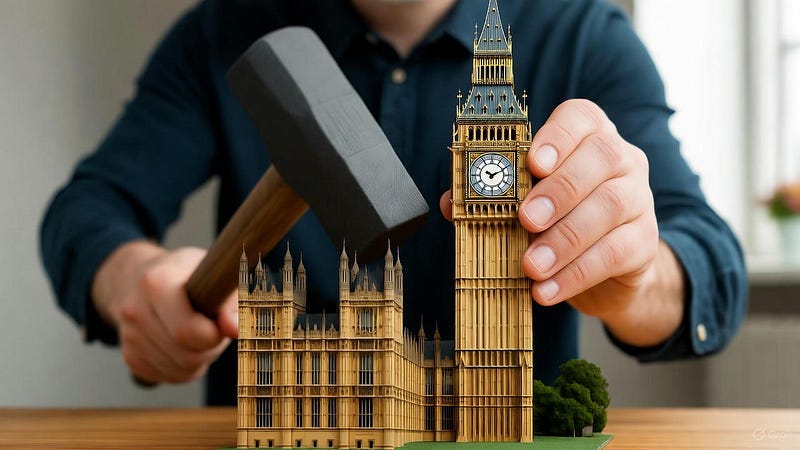Abolish Time Changes
Enough is enough
Last week, during Prime Minister’s Questions in the UK House of Commons, a Member of Parliament named Alex Mayer asked a question that would save her country billions of dollars and thousands of lives:
“As the clocks go back this weekend, would the Prime Minister take a look at the evidence on trialling Churchill Time again?”
Her boss — the Prime Minister of her own party — the robotic, corporate-controlled Keir Starmer, shot her down with a curt dismissal (and likely an outright lie):
“We’ll take a look at the relevant material.”
Sure he will!
What was MP Mayer talking about?
This is a surprisingly fun story:
During World War II, Winston Churchill changed the clocks to shift extra daylight into the evening — one hour ahead of GMT in winter (single BST) and two hours ahead of GMT in summer (double BST).
The first lesson here is that you can just do things.
The second lesson is that pearl-clutchers who say it can’t be done need to read a history book — the UK has only had DST since May 21, 1916.
Churchill Time is, frankly, brilliant:
Over 2 million Britons suffer from Seasonal Affective Disorder (SAD), which costs the nation over £150 million annually, to say nothing of the immense individual and relational suffering
Changing the clocks increases heart attack risk by 5–10% during the transition — sleep matters more than we can imagine.
Those extra hours of sunlight add up — it will save Britons £485 million in electricity per year.
Which, of course, reduces British carbon emissions by over 400,000 tonnes per year.
Less artificial light is better for our eyes, our skin, and even for avoiding balding!
Extra sunlight after work also increases physical activity, saving the nation tens of billions in healthcare costs over the decades ahead.
Aligning life with daylight supports better sleep patterns and overall health.
And let’s not forget how it improves the economy, particularly the hospitality industry, as people are more likely to actually go out if it isn’t pitch black at 5 pm.
Remember, where I live, on the shortest day of the year, the sun sets at 3:40pm.
It’s miserable.
And completely unnecessary.
Frankly, I’d take it further than Churchill Time:
I’d abolish time changes because they’re a heart attack and car accident nightmare (the rates soar because everyone is tired and running late.)
I’d go with fixed GMT+2 year-round — pushing the clock two hours later, so sunset is 5:40 pm on the shortest day of the year.
Then I’d shift the workday from 9–5 to 8–4, giving people nearly two hours of glorious sunlight after work on the shortest day of the year. On the longest day of the year, we’d have 17 hours and 17 minutes of sunlight, from 6:30 AM to 11:47 PM. (Plus, it would align us with our European friends in Paris and Berlin.)
No matter what time model nations use, the guiding star for the conversation should be human health and well-being, not a few extra dollars of savings for corporate shareholders at the cost of material misery for billions.
Clocks should be set for sunmaxxing — to ensure the largest number of people are exposed to the most amount of sun, every single day of the year.
What we have right now isn’t working.
It’s doing the opposite.
It’s killing our health, ransacking our wallets, wrecking the planet, and making us deeply unhappy.
Enough is enough.
Abolish time changes.


